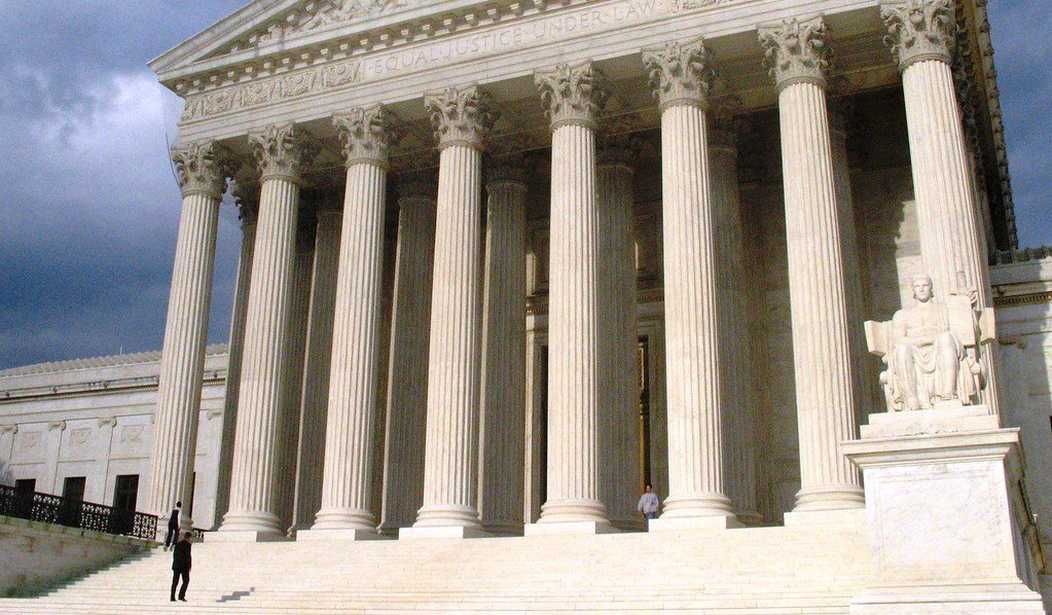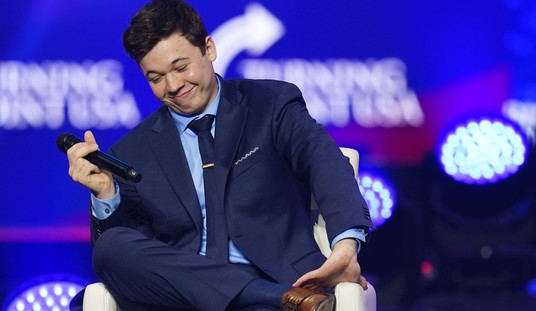The Biden administration and the ACLU would never take the NRA's side in any Second Amendment litigation, but a DOJ attorney and ACLU litigator both defended the organization and its First Amendment rights before the Supreme Court on Monday, arguing that former New York Department of Financial Services superintendent Maria Vullo crossed the line when she encouraged businesses to not have anything to do with the 2A organization after the 2018 shootings at Marjory Stoneman Douglas High School in Parkland, Florida.
Vullo's coercion took place both in public and behind closed doors, according to ACLU attorney David Cole, who pointed to press releases from Vullo's office that "urge all insurance companies and banks” to 'discontinue arrangements with the NRA' as well as a private meeting with representatives from the insurance company Lloyd's of London in 2018.
Vullo allegedly “discussed an array of technical regulatory infractions plaguing the affinity insurance marketplace” and made clear that Lloyd’s “could avoid liability for infractions relating to other, similarly situated insurance policies, so long as it aided DFS’s campaign against gun groups.” And discussing defects in Lockton’s insurance policies, DFS “verbally conveyed to Lockton that it was only interested in pursuing the NRA,” indicating Lockton could quietly remediate identical violations of New York insurance law for other clients after the consent decree targeting the NRA program had been publicized.
Vullo allegedly went to so far as to tell representatives of these companies of her " desire to leverage [her] powers to combat the availability of firearms,” which is a pretty clear indication that her heavy-handed guidance to the firms wasn't based solely on "reputational risk", but was fundamentally about using the power of her office to advance a gun control agenda.
At times, even some of the liberal justices on the Court seemed to take issue with Vullo's comments during the meeting with Lloyd's, which they appeared to put into a separate category from the "guidance" letters and press releases issued by Vullo and her office. An attorney with the Solicitor General's office also bought up the Lloyd's meeting as evidence that the NRA has a legitimate First Amendment claim.
Ephraim McDowell, the Justice Department lawyer representing President Joe Biden's administration, urged the justices to let the NRA pursue its lawsuit, arguing that the group had plausibly alleged that Vullo had violated its First Amendment rights.
McDowell focused on the NRA's claim that Vullo met with insurance executives at Lloyd's, presenting her views on gun control and suggested going easy on regulatory infractions if the company stopped providing insurance for the NRA.
"That's an explicit threat," said McDowell, an assistant to the U.S. solicitor general.
Conservative Justice Brett Kavanaugh pressed attorney Neal Katyal, representing Vullo, to explain why the Biden administration backed the NRA given the government's interest in protecting its right to advocate its point of view.
"It's a bit jarring, I guess for me, that the solicitor general is on the other side of you on this case," Kavanaugh said.
Vullo said in court papers her statements encouraging financial institutions to examine their ties to pro-gun organizations following the Parkland shooting had not "crossed the line between permissible persuasion and unconstitutional coercion."
Katyal accused the NRA of "seeking to weaponize the First Amendment and exempt themselves from the rules that govern you and me simply because they're a controversial speaker."
"When you're in a situation like this of conceded illegality," Katyal said, "there is an obvious alternative explanation for what Ms. Vullo was doing here, which was enforcing the law."
Even if offering NRA's ill-fated Carry Guard insurance wasn't allowed under New York law, Vullo's guidance to companies went beyond advising them not to be a part of any similar program. She encouraged companies to simply not have anything to do with the organization, and she singled out the NRA instead of warning these companies that the type of insurance they were providing wasn't available to New York residents.
That's the main reason why Biden's DOJ is siding with the NRA and not the state of New York in this case. If Vullo can get away with what she did, what's to stop a red state regulator from doing the same to gun control groups or other progressive organizations? Biden has no love for the NRA or our right to keep and bear arms, but his staff can still do simple math, and with a majority of states under GOP control (or at least with Republican governors), Vullo's actions could be replicated on the right in dozens of states in the future if the Supreme Court rules in her favor.
Biden's political calculations may not matter much to the liberal wing of the Court, however, and there were signs that one or more of the progressives on the bench accepted Katyal's argument.
Progressives tend to see the Bill of Rights as exceptions to the general government power to regulate everything, and those exceptions are generously granted by government to the people. But when the government really needs them back, we shouldn't complain too much.
— Kostas Moros (@MorosKostas) March 18, 2024
This is the… https://t.co/hnITVmR8G4
Yes, the First Amendment does hamstring the federal government in significant ways. As Glenn Greenwald said, that's the entire point of the Bill of Rights, made explicitly clear in its preamble.
THE Conventions of a number of the States, having at the time of their adopting the Constitution, expressed a desire, in order to prevent misconstruction or abuse of its powers, that further declaratory and restrictive clauses should be added: And as extending the ground of public confidence in the Government, will best ensure the beneficent ends of its institution.
Those restrictions were aimed exclusively at the power of the federal government, and were put in place because most of those who voted to ratify the Constitution were gravely concerned that the new framework would lead to countless abuses of authority. Unfortunately, they were right, and even the protections guaranteed by the Bill of Rights haven't put a stop to power-mad politicians and petty tyrants, and not just in the Second Amendment space.
Jackson wasn't the only liberal justice to take a dim view of exercising our civil liberties, at least when it comes to using our First Amendment rights in defense of our Second Amendment liberties.
#NRA Justice Kagan just indicated during oral argument in NRA v. Vullo argument now that it is possible that engaging in business with gun companies and gun advocacy groups may give rise to "reputational risk" to banks and others.
— Mark W. Smith/#2A Scholar (@fourboxesdiner) March 18, 2024
Doing business with legal entities that sell lawful products or (in this case) promote activities explicitly protected in the Bill of Rights shouldn't automatically carry "reputational risks." I suspect that if that question truly represents Kagan's thinking here, she's going to be in the minority in Vullo. At least I hope that's the case. If Kagan's theory were to carry the day, the outcome would be disastrous for advocacy groups of all stripes... including, but not limited to, 2A groups across the country.









